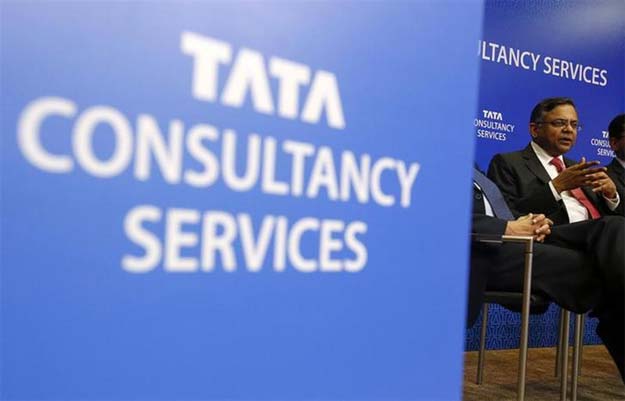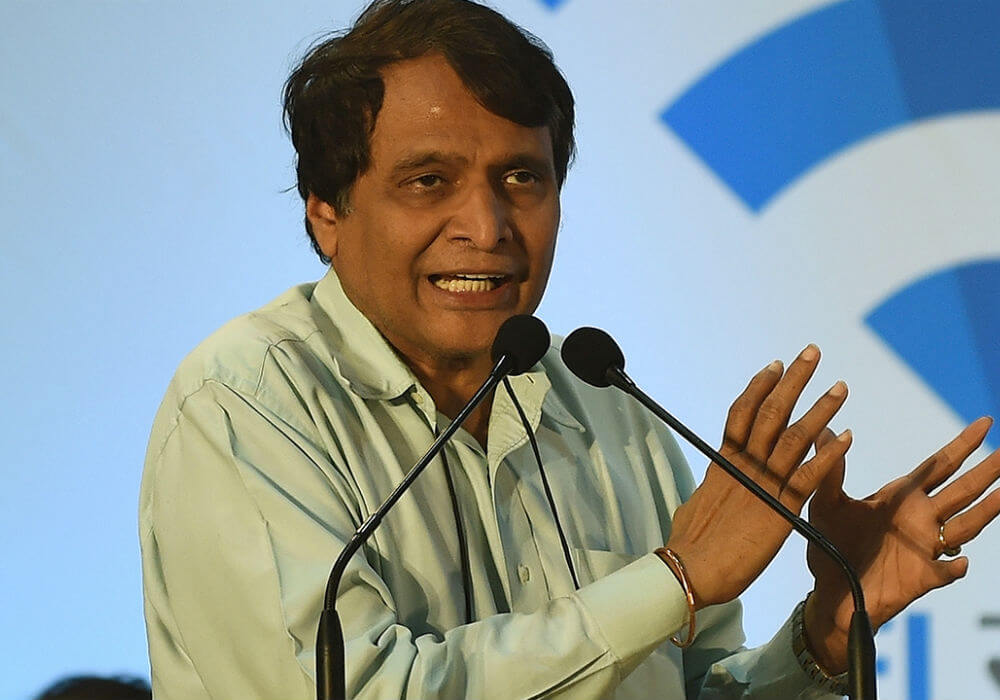1. FM And CBGs From G20 Agree For Economic Growth By Promoting Trade.
Finance ministers and central bank governors agreed that now is a good time to normalize monetary policy, and expressed optimism on the future of work, one of the priorities of the Argentine G20 presidency.
The Second G20 Meeting of Finance Ministers and Central Bank Governors concluded today with a press conference given by G20 finance chairs Argentine Treasury Minister Nicolás Dujovne and Central Bank President Federico Sturzenegger. At the end of the two-day meeting, the chairs drew attention to growth in the global economy and the opportunity to take measures to mitigate latent risks.
“The economic scenario in the world has strengthened and is very positive,” said Sturzenegger, pointing to global growth forecasts of 4% both for this year and for 2019.
Recognizing that risks still exist, such as a retreat to inward-looking policies and geopolitical challenges, the Central Bank President announced that that group agreed on now being the right time to normalize monetary policy at international level and “fix the roof while the sun is shining.” Dujovne reinforced this: “there is no room right now to avoid entering into countercyclical policies.”
Sturzenegger explained that monetary policy normalization should be a gradual process, one which requires better communication between members of the G20. In this respect, the chairs agreed that it was a very fruitful meeting, paving the way for progress on a number of issues.
One such issue mentioned by Dujovne was the future of work, one of the priorities of the Argentine G20 presidency. “We have a very positive view on the outcome that [technological change] will have in terms of growth in the medium and longer-term. But, of course, this is also a challenge for our citizens who are facing this dramatic change in the way in which we produce, consume, communicate,” he explained.
Dujovne indicated that the G20 is working on concrete public policy proposals that will be presented at the next finance ministerial meeting in Buenos Aires in July, mentioning that taxes and competitive conditions can be used to “help with this transition.”
The Compact with Africa (CWA), an initiative launched under the German presidency in 2017 to promote private investment in Africa, was also addressed by the finance leaders. The considerable progress made in this area “shows how important the G20’s institutional work is,” stated Dujovne, adding that of the 100 CWA projects launched, 25 have been completed.
When questioned on contentious issues surrounding trade this year, in particular between China and the United States, Dujovne and Sturzenegger alluded to the group`s agreement on the importance of global trade. “There was a general appeal for multilateralism,” said Sturzenegger. “Even when there are some differences… we have a very strong consensus on how beneficial trade is in terms of increasing growth, increasing prosperity, lifting productivity,” added Dujovne.
Access the full transcript of the news conference.
About the G20
The G20 started out in 1999 as a meeting of finance ministers and central bank governors. In 2008, amidst the global financial crisis, it evolved into what it is today: a major forum for dialogue and decision-making attended by world leaders from vital economies. Together, the G20 members represent 85% of global GDP, two-thirds of the world’s population, and 75% of international trade.
2. IOB Inks Information Utility Pact With NeSL.

Indian Overseas Bank (IOB), one of the leading public sector banks, on Friday entered into an agreement for information utility services with the National E-Governance Services Limited (NeSL). The NeSL became India`s first information utility (IU) for bankruptcy cases under the `Insolvency and Bankruptcy Code (IBC) 2016` in October 2017.
With this agreement, the IOB branches will be able to provide high-quality, authenticated information about debts and defaults; which will have more transparency in maintaining the list of borrowers, debtors, creditors and loan defaulters.
"This agreement signifies the core services of NeSL under IBC and information utility regulations which would be available to IOB stakeholders. The information utility service will enable lenders in making decisions on credit transactions," said R M.A.Alagappan, General Manager, Indian Overseas Bank.
3. TCS, 1st Indian Company With 100 Billion Dollar Market Value.

TCS or Tata Consultancy Services` market capitalisation or market value hit 100 billion dollar today, making it the first Indian IT company to achieve the mark. TCS shares moved nearly 4 per cent higher today at day`s high, extending their Friday`s surge. TCS shares rose today by 4 per cent to Rs. 3,557, pushing the market capitalisation of India`s biggest outsourcer to over Rs. 6.8 lakh crore. Shares of TCS had surged by nearly 7 per cent on Friday, making investors richer by over Rs. 40,000 crore in a day. On the other hand, the rupee declined further today to edge closer to 66.50 mark against the dollar today, as compared to Friday`s close of 66.12. TCS shares pared most of the gains to end marginally higher at Rs. 3,415 on BSE today.
Energy-to-telecom conglomerate Reliance Industries, led by Mukesh Ambani, is the only other Indian company that had breached the $100 billion mark, way back in 2007.
Deal wins in January-March helped the Mumbai-headquartered company post its biggest-ever net profit in the quarter. TCS had announced its earnings after market hours on Thursday. TCS posted a net profit of Rs. 6,904 crore, beating analysts` average estimate of Rs. 6,798 crore. TCS, part of salt-to-software conglomerate Tata group, reported Rs. 32,075 crore as income from operations - a rise of 8.2 per cent from a year ago.
4. India`s 1st E-Commerce Think Tank Meet Convened By Suresh Prabhu.

Minister of Commerce & Industry and Civil Aviation, Suresh Prabhu, will chair the first meeting of the think tank on the Framework for National Policy on E-commerce to be held on April 24th, 2018. Senior officers of the ministries/ departments of the Government of India involved in different aspects of e-commerce; high-level representatives from the industry bodies, e-commerce companies, telecommunication companies and IT companies; Reserve Bank of India; and independent experts have been invited to participate in the meeting.
The think tank on the Framework for National Policy on e-commerce has been established recently by the Department of Commerce. It will provide a credible forum for an inclusive and fact-based dialogue leading to recommendations for informed policy making, so that the country is adequately prepared to take advantage of the opportunities, and meet the challenges, that would arise from the next wave of advancements in the digital economy.
The think tank on the Framework for National Policy on E-commerce will seek to collectively deliberate on the challenges confronting India in the arena of digital economy with a view to developing recommendations for a comprehensive and overarching national policy on e-commerce.
Some of the issues that will be discussed by the think tank include the following aspects of e-commerce and digital economy: physical and digital infrastructure, regulatory regime, taxation policy, data flows, server localisation, intellectual property rights protection, FDI, technology flows, responding to disruptions in industrial organisation, need for skill development and trade-related aspects.
Developments in e-commerce at the WTO and evolving appropriate national position on the underlying issues would be another important dimension of the discussions of the think tank on the Framework for National Policy on E-commerce.
The think tank will explore options for providing a fillip to entrepreneurship in the digital economy. It will identify specific policy interventions for nurturing domestic firms and create jobs in e-commerce.
Representatives of almost fifty organisations are expected to participate in the first meeting of the think tank on the Framework for National Policy on E-commerce to be held on 24 April 2018.
5. Microsoft Is India`s Most Attractive Employer: Randstad Survey.

Technology giant Microsoft India has been declared the most attractive employer brand, followed by e-commerce giant Amazon India. The winners were named by HR service provider Randstad`s Employer Brand Research (REBR) 2018. Other names in the list include Hindustan Unilever, IBM India, ITC Group, Larsen & Toubro, Mercedes-Benz India, Samsung India, Sony India and Tata Consultancy Services. Sector wise, Tata Consultancy Services is most favoured in IT, while Larsen & Toubro tops Infrastructure & Construction and Hindustan Unilever emerges the winner in FMCG.
"Employer Branding has never been more important than it is now. Candidates have choices, not only where they decide to work but in what capacity," said Paul Dupuis, MD & CEO Randstad India.
The REBR covered 75% of the global economy with 30 participating countries and more than 1,75,000 respondents worldwide. The research highlighted that people prefer working for companies in sectors like IT & ITeS that was picked by 69% of the respondents, followed by Automotive by 68% and Retail & FMCG by 67%.
Salary and employee benefits were the top influencing factor for employees while choosing an employer. Forty-eight per cent of respondents picked that, followed by work-life balance that was picked by 44%, job security by 42%, both career progression and strong management by 39%. At least 43% respondents said that they left their employers for lack of career growth opportunities.
Forty-nine per cent of the respondents mentioned that work places need to be open, flexible and should demonstrate a willingness to change in order to retain their employees as well as keep them engaged.
The research also revealed that men favour organisations with strong leaders, while women prefer employers who offer strong training programmes.
6. NSE Launches E-Gsec Platform For Bringing Retail Participation In Government Securities.

Leading stock exchanges BSE and NSE have announced the launch of online platforms to bring retail investors` participation in government securities.
The exchanges will act as facilitators for non-competitive bidding under RBI`s auction for government securities (G-Sec) and treasury bills (T-Bills).
The platform will allow retail investors to invest in government securities and hold them in existing demat accounts.
In a statement, the bourse said that the launch of NSE`s e-Gsec platform will provide investors an opportunity to participate in G-Sec to be auctioned on April 26 and the subsequent weekly auctions of G-Sec and treasury bills (T-Bills).
Separately, the BSE said it would offer an online bidding platform `NCB-GSec` for collecting bids from members on behalf of their clients.
The move comes after the Reserve Bank of India (RBI) introduced non-competitive bidding facility to encourage retail participation in the primary market for government securities.
The Union Budget 2016-17 had announced that RBI will facilitate retail participation in the primary markets through stock exchanges.
RBI conducts auction for G-Sec and T-Bills on a weekly basis where 5 per cent of the notified amount is allotted for eligible investors under the scheme for non-competitive bidding facility.
"Non-competitive bidding through exchanges is an efficient mechanism for delivering government securities to retail clients. Promoting retail participation in government securities benefits both the issuer and the investor," NSE MD and CEO Vikram Limaye said.